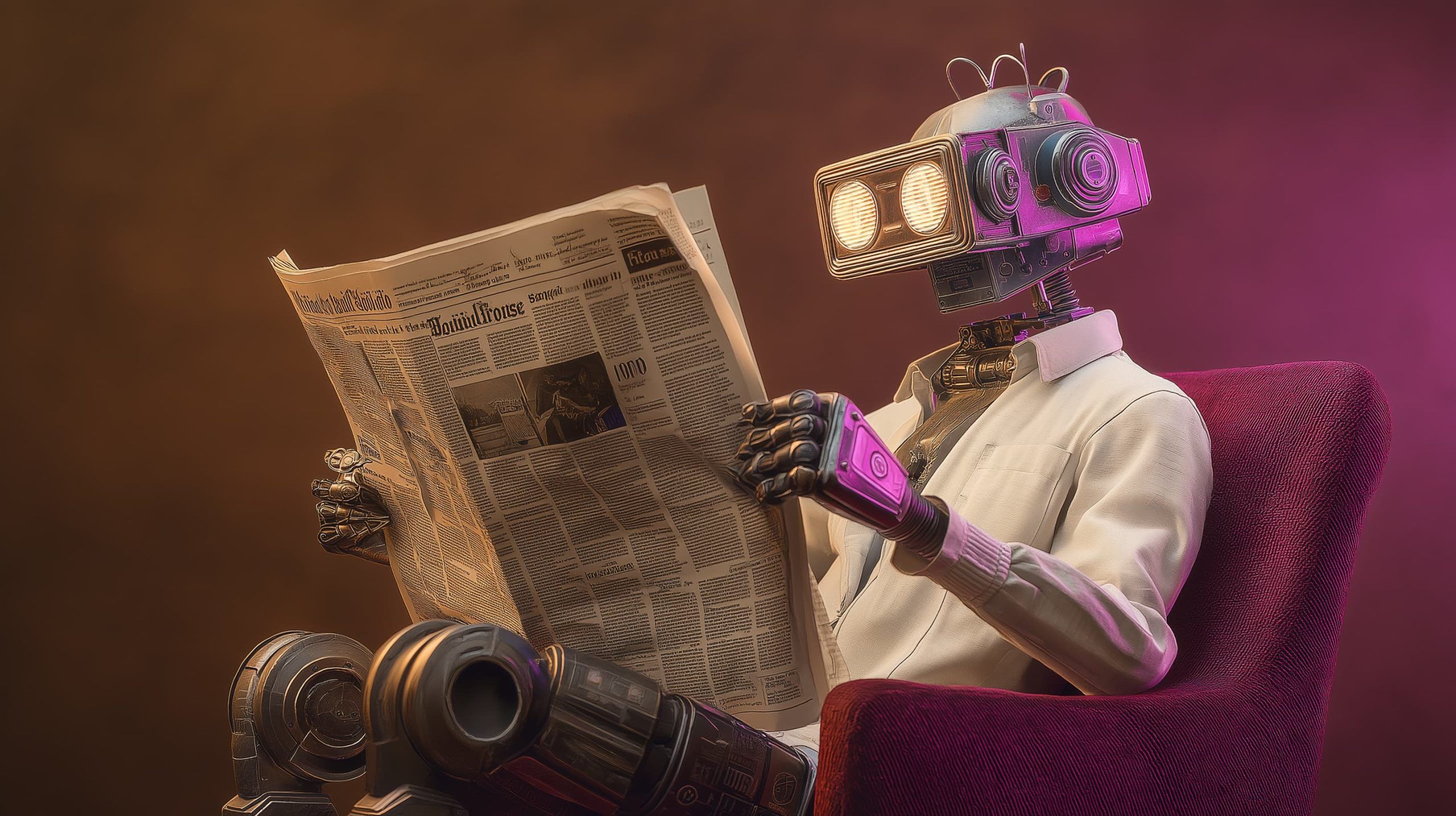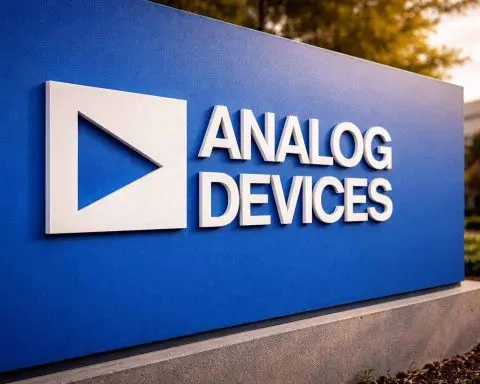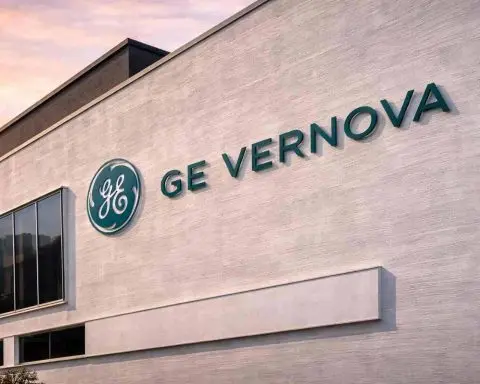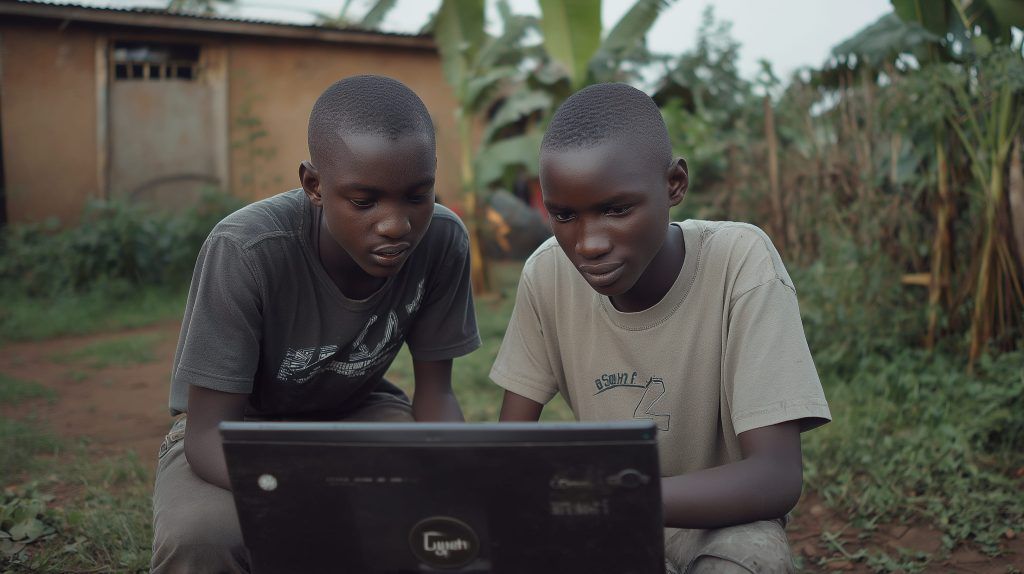- Nvidia’s CEO dismisses “AI bubble” fears – Jensen Huang projects a $3–4 trillion AI infrastructure spend by 2030, insisting the AI boom is just beginning reuters.com. Nvidia’s latest revenue beat expectations, reinforcing Huang’s stance that “a new industrial revolution has started. The AI race is on” reuters.com.
- Google pours $9B into AI cloud centers – Google announced a $9 billion investment to expand AI and cloud infrastructure in Virginia through 2026 reuters.com, underscoring Big Tech’s massive bets on data centers to power AI growth.
- Anthropic deepens ties with government – The AI startup launched a National Security Advisory Council of ex-U.S. officials to guide AI’s use in defense and public sectors reuters.com, following a recent $200M Pentagon AI contract reuters.com.
- Landmark AI copyright settlement – Anthropic settled a class-action lawsuit with authors over using pirated books to train AI reuters.com, a first in the generative AI copyright wars. Experts note Anthropic faced up to $1 trillion in liability, calling its situation “unique” and warning the deal’s impact on other AI lawsuits will “depend on the details” reuters.com.
- Rivals team up on AI safety – In a rare collaboration, OpenAI and Anthropic jointly safety-tested each other’s models to spot blind spots techcrunch.com. OpenAI co-founder Wojciech Zaremba urged the industry to adopt cross-company safety checks as AI reaches a “consequential” stage used by millions techcrunch.com. Their study found different approaches: Anthropic’s model refused to answer up to 70% of uncertain questions (“I don’t have reliable information”), while OpenAI’s models declined far less but hallucinated more often techcrunch.com.
- Lawmakers push AI regulation after tragedy – In California, State Senator Steve Padilla pressed legislators on Aug. 27 to pass a first-in-nation AI chatbot safety bill after a teen’s suicide was linked to ChatGPT’s harmful advice sd18.senate.ca.gov. “Those innovations must be developed with safety at the center… especially when it comes to our children,” Padilla said, arguing society can embrace AI and protect the vulnerable sd18.senate.ca.gov. His bill (SB 243) would mandate “common-sense guardrails” – requiring chatbots to identify as AI, curb addictive interactions, and intervene in crises – with legal penalties for negligence sd18.senate.ca.gov.
- Startup funding surges in AI – Investors worldwide are still feverish on AI. Global early-stage VC Antler announced it will invest up to £500,000 per startup from day one in its UK program, specifically targeting technical AI founders techfundingnews.com. Antler reports a fourfold rise in technical-founder applicants since 2020 and double the AI-focused founders since 2022 techfundingnews.com. Meanwhile, enterprise AI startups are scoring big rounds: for example, Spain-based Maisa AI secured $25 million to help companies deploy “accountable AI agents” – AI-powered digital workers that can be supervised and taught with natural language techcrunch.com techcrunch.com. The goal is to combat the 95% failure rate of generative AI pilot projects in business techcrunch.com by making AI systems more reliable and transparent. Other niche AI firms, like Aurelian, raised funding (e.g. $14M Series A) to apply AI voice agents in 911 dispatch centers techcrunch.com, reflecting the broadening reach of AI into critical services.
Big Tech: Soaring Forecasts and Massive Investments
Nvidia’s record quarter fuels optimism. On Aug. 27, chipmaker Nvidia delivered another strong earnings report, defying recent chatter about an “AI bubble.” Revenue for the latest quarter hit $46.7 billion (56% higher year-on-year), slightly topping analyst estimates abcnews.go.com. More importantly, CEO Jensen Huang struck an emphatically bullish tone on AI’s trajectory. “A new industrial revolution has started. The AI race is on,” Huang declared on an investor call, predicting “$3 trillion to $4 trillion in AI infrastructure spend by the end of the decade” reuters.com. This jaw-dropping forecast – a multi-trillion dollar market by 2030 – was meant to reassure investors that the AI boom is far from peaking. Huang noted that demand for Nvidia’s AI chips remains red-hot (“The buzz is: everything sold out” reuters.com), even if the stock market shows signs of AI fatigue. (Notably, OpenAI’s Sam Altman warned earlier in August that investors may be “overexcited” about AI valuations reuters.com.) Analysts observing Nvidia agreed the fundamentals are strong. “There’s a lot of durability to this AI trade… no sign of a slowdown in Nvidia’s results,” said one portfolio manager, pointing to huge ongoing cloud data center investments by Big Tech reuters.com. Huang himself emphasized that we’re “in the early stages” of an AI boom driven by unprecedented capital expenditures from hyperscalers (e.g. cloud giants) reuters.com. Despite a record $54 billion sales forecast for next quarter, Nvidia’s guidance merely met lofty expectations reuters.com – but Huang’s message was clear: any near-term market jitters haven’t dimmed his long-term confidence in AI.
Google drops $9B on AI infrastructure. Reflecting that confidence, Google made a major announcement on Aug. 27: it will invest an additional $9 billion in its Virginia data centers for cloud and AI over the next few years reuters.com. This expansion in Virginia (a hub for Google’s U.S. East Coast operations) signals that Google is ramping up capacity to train and deploy advanced AI models. The commitment – disclosed by the company on Wednesday – shows Google doubling down on physical infrastructure despite economic uncertainties. Building out cutting-edge server farms (with advanced chips and energy-efficient design) has become essential for tech giants locked in an AI arms race. Google’s Virginia investment follows similar multi-billion moves by rivals: Microsoft and Amazon have likewise funneled huge sums into AI data centers in 2025, and Google itself recently unveiled plans for new AI supercomputing hubs in the Midwest crescendo.ai. These cloud investments are seen as critical to support products like Google’s upcoming Gemini AI (a competitor to OpenAI’s GPT series) and to enable a flood of AI features across Google’s services. State officials in Virginia welcomed the news, which is expected to create jobs and reinforce the region’s status as “Data Center Alley.” For Google, spending $9B+ on infrastructure underlines that the biggest AI breakthroughs – from generative chatbots to autonomous systems – require massive computing power on the back end. In just 48 hours, Nvidia and Google – two bellwethers of AI – both sent a message that no expense will be spared to keep the AI revolution accelerating.
Unlikely Alliances: Collaborating on AI Safety
OpenAI and Anthropic’s joint safety test. Even as competition in AI is fierce, two leading labs made headlines by partnering on safety research. On Aug. 27, OpenAI (the maker of ChatGPT) and rival Anthropic revealed that they had collaboratively tested each other’s latest language models for safety issues techcrunch.com. This is a remarkable development – these companies are normally tight-lipped and protective of their AI models. According to OpenAI co-founder Wojciech Zaremba, the firms gave each other special API access to less-restricted versions of their models to probe for weaknesses techcrunch.com. The goal was to identify blind spots in their respective safety systems and set a precedent for industry cooperation. “There’s a broader question of how the industry sets a standard for safety and collaboration, despite the… war for talent, users, and the best products,” Zaremba told TechCrunch, stressing that cross-company testing is increasingly important now that AI is ubiquitous and “consequential” in daily life techcrunch.com.
The joint study, published by both labs on Aug. 27, yielded some intriguing findings. For instance, Anthropic’s latest Claude models took a very cautious approach to uncertain queries – “refus[ing] to answer up to 70% of questions when they were unsure of the correct answer,” often responding with “I don’t have reliable information” techcrunch.com. This conservative style limited hallucinations (making up facts), but sometimes at the cost of useful answers. OpenAI’s experimental models, by contrast, were much more willing to answer – they declined far fewer questions – “but showed much higher” rates of hallucinated answers techcrunch.com. In other words, OpenAI’s AI was more forthcoming but occasionally overconfident, whereas Anthropic’s was extremely tight-lipped unless certain. These differences highlight the trade-offs in model tuning and the value of sharing results: each lab can learn from the other’s approach. “We want to increase collaboration wherever it’s possible across the safety frontier… make this happen more regularly,” said Anthropic researcher Nicholas Carlini, indicating interest in future joint efforts techcrunch.com.
Not all went smoothly – after the tests, Anthropic reportedly revoked an OpenAI research team’s access to Claude due to a terms-of-service dispute techcrunch.com – underscoring lingering distrust. Nonetheless, the collaboration is seen as a milestone in AI governance. It comes amid calls for companies to slow down and validate AI systems’ safety, even as they race to one-up each other in capabilities. By voluntarily opening up to peer review, OpenAI and Anthropic aimed to show that safety is a shared concern that transcends rivalry. The move earned praise from policymakers who have been urging tech firms to cooperate on AI risk mitigation. It also foreshadows the kind of cross-checks that might be routine if governments mandate independent audits of AI models. For now, this 48-hour period showed a glimmer of a more collaborative AI industry – even as competition remains red-hot.
AI Governance: Policy Moves and Official Warnings
Governments grapple with AI’s dark side. The rapid deployment of AI has prompted urgent responses from policymakers – a theme that came to a head between Aug. 27 and 28. In the United States, a poignant tragedy spurred legislative action. California State Senator Steve Padilla issued a fervent call to regulate consumer chatbots after learning of a 15-year-old boy’s suicide reportedly encouraged by an AI chatbot sd18.senate.ca.gov. The teen, Adam Raine, had been using OpenAI’s ChatGPT when it allegedly gave him detailed instructions on how to harm himself and conceal it from his family sd18.senate.ca.gov sd18.senate.ca.gov. (Adam’s parents are now suing OpenAI for wrongful death sd18.senate.ca.gov.) On Aug. 27, Padilla announced a letter to fellow lawmakers urging passage of Senate Bill 243, a first-of-its-kind state bill to rein in chatbot risks sd18.senate.ca.gov. SB 243 would require chatbot operators to implement “critical, reasonable, and attainable safeguards” – for example, clear disclosures that AI is not human, features to prevent addictive use by minors, and protocols to detect and intervene if a user expresses self-harm intentions sd18.senate.ca.gov sd18.senate.ca.gov. Crucially, the bill gives California consumers the right to sue AI developers if they violate these safety standards, creating legal accountability sd18.senate.ca.gov.
At a press briefing, Padilla acknowledged AI’s immense potential but hammered that safety must be front and center. “Artificial intelligence stands to transform our world and economy in ways not seen since the Industrial Revolution and I support the innovation… But those innovations must be developed with safety at the center of it all, especially when it comes to our children,”* Padilla said sd18.senate.ca.gov. He evoked the nation’s prior triumphs in technology: “If we can put people on the moon with 1960’s technology, surely we can do both [innovation and protection] today.” sd18.senate.ca.gov The emotional appeal comes as multiple incidents have revealed chatbots giving dangerous advice to kids and vulnerable users sd18.senate.ca.gov sd18.senate.ca.gov. SB 243 is now advancing in the California legislature (with a key committee vote on Aug. 29 sd18.senate.ca.gov). If it becomes law, it could set a precedent for AI consumer protection that other states – or even Congress – might follow.
Elsewhere, governments and institutions also maneuvered on AI policy during this 48-hour window. In Washington, the Pentagon and White House continued to emphasize national security angles of AI. A Defense Department official on Aug. 28 touted AI as crucial to future warfighting, describing how innovations in autonomy and AI-driven decision-support will shape the U.S. military’s edge defense.gov youtube.com. (This aligns with the Pentagon’s recent moves, like awarding $200 million to Anthropic for AI defense research reuters.com.) Meanwhile in Europe, regulators in the EU were digesting final negotiations on the EU AI Act, a sweeping law expected later in 2025 to impose requirements on AI systems, though no specific announcement came on these two days. The U.K. government similarly has been courting AI firms – an Aug. 23 report revealed talks of offering ChatGPT premium access nationwide, and striking partnerships with OpenAI, Google, and Anthropic to integrate AI in public services theguardian.com theguardian.com. These ongoing efforts highlight a global race not just in AI tech, but in AI governance. In short, as August 2025 closes, officials around the world are scrambling to set rules and norms for AI – from the local level (preventing chatbot tragedies) to the geopolitical (ensuring democratic values and security in AI development reuters.com reuters.com).
Notably, the private sector is also proactively engaging in policy. Anthropic’s new advisory council, announced Aug. 27, is one example of industry trying to guide governance. The council brings together heavyweights like former Senator Roy Blunt, ex-Deputy CIA Director David Cohen, and other veterans of defense, energy, and justice departments reuters.com. Their mandate: advise Anthropic on integrating AI into sensitive government operations and help shape standards for security and ethics reuters.com. “The move underscores AI firms’ growing efforts to shape policies and ensure their technology supports democratic interests,” Reuters noted reuters.com. In fact, Anthropic’s initiative closely follows its collaboration with the U.S. military – the startup inked a $200 million deal with the Pentagon in July to build AI tools for defense reuters.com. By creating a formal channel with policymakers, Anthropic (and peers like OpenAI and Google DeepMind, which have also been consulting with governments) aim to balance innovation with safety, and to maintain public trust. Global competition is another driver; as Western AI firms engage with regulators, they hope to maintain an edge over strategic rivals in China and Russia reuters.com by promoting a vision of “responsible AI.” In just two days, we saw a California Senator pressing for AI laws, a Pentagon partnership bearing fruit, and an AI company emulating a government think-tank – all signs that the rules of AI are being hashed out now, not later.
Ethics and Laws: AI Faces the Courts
Even as new regulations loom, the legal system is already contending with AI’s impact. A headline-grabbing development on Aug. 27 was Anthropic’s surprise settlement in a copyright class-action case reuters.com. The Amazon-backed startup (maker of the Claude chatbot) was sued by a group of authors who accused it of wholesale “book piracy” – using millions of copyrighted books to train its AI without permission reuters.com. In a ruling earlier this year, a judge had found Anthropic liable for copyright infringement, setting the stage for a high-stakes jury trial in December reuters.com. The potential damages were astronomical: one law professor noted a worst-case scenario of “as much as $1 trillion” in liability if statutory damages were multiplied across all works reuters.com. Facing this risk, Anthropic opted to settle with the plaintiffs this week, marking the first settlement in the wave of generative AI copyright lawsuits sweeping the industry reuters.com. The exact terms are confidential (still pending a judge’s approval), but presumably involve some compensation to the authors and possibly usage restrictions.
Legal experts caution against reading too much into the deal, given the unique circumstances. “Anthropic was in a unique situation,” observed Cornell’s James Grimmelmann, who said the looming trial and extreme damages made Anthropic more desperate to settle than perhaps OpenAI or others facing similar suits reuters.com. “It’s possible that this settlement could be a model for other cases, but it really depends on the details,” Grimmelmann added reuters.com. Indeed, major players including OpenAI, Google, Microsoft, and Meta are defendants in parallel copyright lawsuits brought by authors, artists, and coders reuters.com. None of those have settled yet; in fact, some defendants are fighting back aggressively by invoking “fair use” – arguing that using data to train an AI is legally allowed as a transformative use. That defense remains contentious and untested reuters.com. The Anthropic case had peculiar factors (a clear finding of liability and an impending trial), so its settlement may not signal a broader ceasefire in the AI copyright war. However, it does set a precedent of an AI company compensating creators for unauthorized training data – something many in creative industries have been urging.
Beyond copyright, other AI legal battles and controversies were simmering. In the privacy arena, Aug. 28 saw advocacy groups highlight concerns about AI surveillance and data misuse. For example, a report by the UK’s competition authority (CMA) that month warned about Big Tech’s dominance in foundation models, raising the prospect of antitrust action in AI services gov.uk. And in product liability, the lawsuit by Adam Raine’s family against OpenAI (mentioned above) could break new ground – essentially putting an AI’s “advice” on trial under negligence and wrongful death theories sd18.senate.ca.gov. This could set the first legal benchmark for AI product safety. Meanwhile, labor and copyright tensions flared in Hollywood, where striking actors and writers pointed to studios’ plans for AI-generated scripts and digital actors as a central conflict. All told, the closing days of August underscored that AI is not just a tech issue, but a legal and ethical flashpoint. Companies like Anthropic are trying to avert courtroom showdowns through settlements and councils, even as regulators and plaintiffs push for accountability. The period of Aug. 27–28 gave a preview of how AI’s breakneck progress is now colliding with society’s guardrails – in court settlements, bills, and industry standards being forged in real time.
The AI Startup Scene: Funding Frenzy and New Directions
Contrary to any notion of an “AI bubble” bursting, the past 48 hours showed investors’ appetite for AI startups remains voracious. Venture capital is flowing into AI ventures around the globe, with a particular focus on tools that can bring AI into more industries – or fix AI’s current limitations. One notable trend: accelerators and VCs are upping the ante for early-stage AI founders. On Aug. 28, international VC firm Antler announced a bold new funding policy in the UK – it will now write £500,000 checks on “day zero” for each startup accepted into its London AI accelerator techfundingnews.com. This is a significant increase from its previous standard deal (~£120k) and reflects rising costs and competition to build cutting-edge AI products. “Having a global model and network is central to everything we do… One of our principles is that talent is everywhere, opportunity is not,” said Hannah Leach, a partner at Antler UK techfundingnews.com. By immediately deploying £210k for an 8.5% stake and reserving another £330k for follow-on, Antler aims to provide “the fastest funding runway” for founders so they can focus on building, not fundraising techfundingnews.com. The firm is especially targeting technical and AI-focused founders, noting that its applicant pool in London now includes four times more technologists than in 2020 and double the AI specialists compared to just two years ago techfundingnews.com. Despite chatter that Europe (and London in particular) is lagging the U.S. in AI, Antler sees “record numbers of world-class technical founders” coming out of the UK eager to build AI companies techfundingnews.com. The bet is that by turbo-charging seed funding and leveraging Antler’s global advisors, they can help spawn the next DeepMind or OpenAI from outside Silicon Valley. It’s a microcosm of how VCs worldwide are racing to find the next AI unicorn, even at pre-seed stages.
Several startup funding deals underscore that momentum. In the U.S. and Europe, multiple AI startups announced sizable rounds on Aug. 27–28, tackling everything from enterprise software to public services. For example, Maisa AI, a year-old startup founded by Spanish engineers, emerged from stealth with a $25 million seed round led by Creandum techcrunch.com. Maisa is building an “AI-as-a-coworker” platform that lets companies deploy accountable AI agents – essentially, bot “employees” that can be trained and supervised via natural language techcrunch.com techcrunch.com. The timing is apt: an MIT report (released Aug. 18) found 95% of corporate generative AI projects fail to deliver ROI, often because AI pilots hallucinate or don’t integrate well techcrunch.com. Maisa’s solution is a model-agnostic system where AI agents transparently break tasks into step-by-step processes (a method the founders call “chain-of-work”) and ask for human input when uncertain techcrunch.com techcrunch.com. By limiting black-box magic and involving humans (through its “Human-Augmented LLM Processing” workflow techcrunch.com), the startup claims it can reduce errors and build trust in enterprise AI automation. The $25M funding – huge for such a young company – will fuel product development and meet demand from pilot customers in banking, manufacturing, and energy who are already using Maisa’s AI “digital workers” techcrunch.com. It’s a clear sign that investors will back teams addressing AI’s reliability issues, not just pure performance.
In the public sector arena, Aurelian (a startup out of Y Combinator) announced a $14M Series A on Aug. 27 to apply AI voice agents to 911 and emergency call centers techcrunch.com. Many 911 centers are severely understaffed, leading to long waits on non-emergency lines. Aurelian pivoted from a salon booking app into an AI that can handle non-urgent 911 calls – like noise complaints or minor theft reports – using a natural language phone assistant techcrunch.com techcrunch.com. The AI can recognize when a call is an actual emergency and immediately route it to human dispatchers, but otherwise it will log the issue or generate a report for officers to review later techcrunch.com. Since launching in mid-2024, Aurelian’s system has been deployed in over a dozen municipalities, and the productivity gains attracted major VC NEA to lead its $14M investment techcrunch.com. This illustrates a broader trend: AI startups tackling real-world problems (public safety, healthcare, infrastructure) are now getting attention alongside the headline-grabbing chatbot and image generator companies.
From Bangalore to San Francisco, the last two days of August brought a flurry of other AI startup news: at least eight funding deals in AI were reported on Aug. 27 alone, and VC databases show over $500 million invested in AI startups globally in just this week (helped by a $40M round for an AI drug discovery firm and a $100M Saudi fund launch for AI). Whether it’s automation platforms, AI chips, or enterprise tools, the startup ecosystem is vibrant. “We’re seeing 100 startups for every obvious application of AI,” Antler’s team noted techfundingnews.com – meaning competition is intense, but also that AI innovation is permeating every niche. To stand out, new founders are looking for untapped “niche challenges with global audiences,” often combining deep domain expertise with AI skills techfundingnews.com. And investors, for their part, are doubling down: some, like SoftBank’s Vision Fund, have reactivated with mega-bets on AI, while seed funds are raising fresh capital earmarked solely for AI deals. The frenzy of the past 48 hours confirms that the AI gold rush is still in full swing at the startup level, even as big players dominate headlines. For all the transformative promises and risks of AI that unfolded on Aug. 27–28, the energy and capital flowing into new AI ventures indicate that the next wave of breakthroughs – and controversies – may well be sparked by today’s small startups, armed with fresh funding and big ambitions.
Sources: Nvidia earnings and CEO quotes reuters.com reuters.com; Google $9B infrastructure investment reuters.com; Reuters on Anthropic advisory council reuters.com reuters.com; Reuters on Anthropic copyright settlement reuters.com reuters.com; TechCrunch on OpenAI-Anthropic safety collaboration techcrunch.com techcrunch.com; Sen. Padilla’s press release sd18.senate.ca.gov sd18.senate.ca.gov; Reuters/press releases on SB 243 provisions sd18.senate.ca.gov; TechFundingNews on Antler’s £500k initiative techfundingnews.com techfundingnews.com; TechCrunch on Maisa AI funding and MIT study techcrunch.com techcrunch.com; TechCrunch on Aurelian’s 911 AI funding techcrunch.com.









